EVGA X299 Dark Motherboard Specifications
Here is a list of the motherboard specs from EVGA X299 Dark Motherboard:
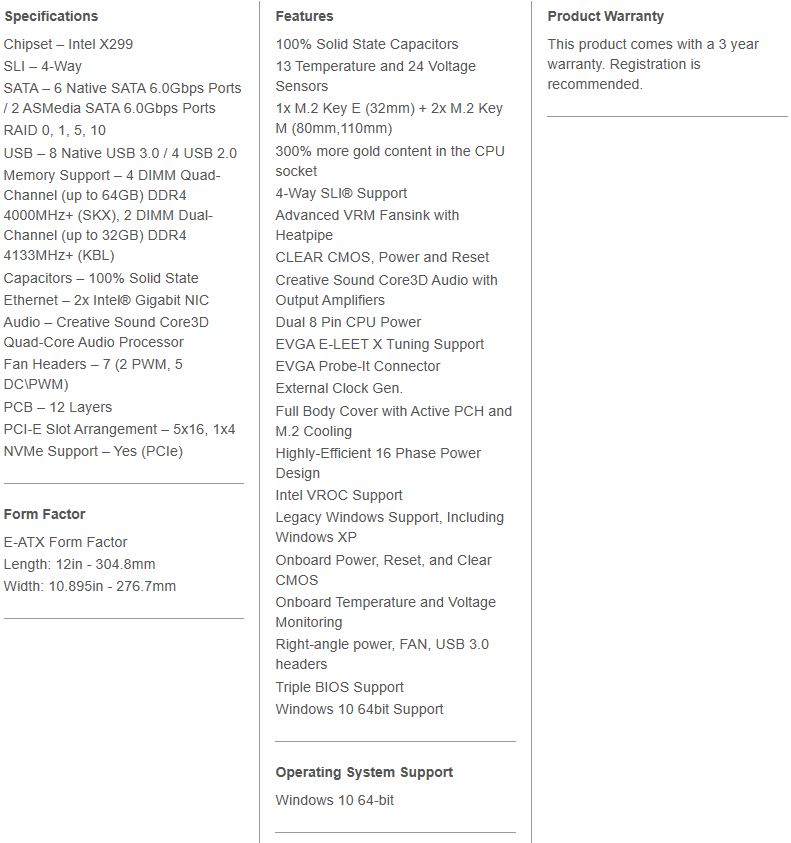
Again, there are a few bits we would have liked to have seen. 32GB DIMM support means it can handle 128GB of memory, but not more. Networking is still wired only and 1GbE which is starting to seem slow in the HEDT segment. Features such as Bluetooth are easy to add via USB, but they are also nice to have built-in. This motherboard is built like a race car so it does away with some of those features instead focusing on speed.
Testing the EVGA X299 Dark Motherboard
Here is the test configuration we used:
- Motherboard: EVGA X299 Dark Motherboard
- CPU: Intel Core i9-10980XE 3.0GHz (18 core/36 thread)
- GPU: NVIDIA GeForce RTX 2080 SUPER
- Cooling: Noctua NH-U9DX-i4
- RAM: 4x Crucial 16GB DDR4 – 2666 UDIMM Low Profile (64GB Total)
- SSD: Samsung PM961 1TB
- OS: Windows 10 Pro Workstation
- PSU: EVGA Supernova 1600 T2 1.6kW
For our CPU we will be using an Intel Core i9-10980XE 3.0GHz (18 core/36 thread) CPU that you can see here:
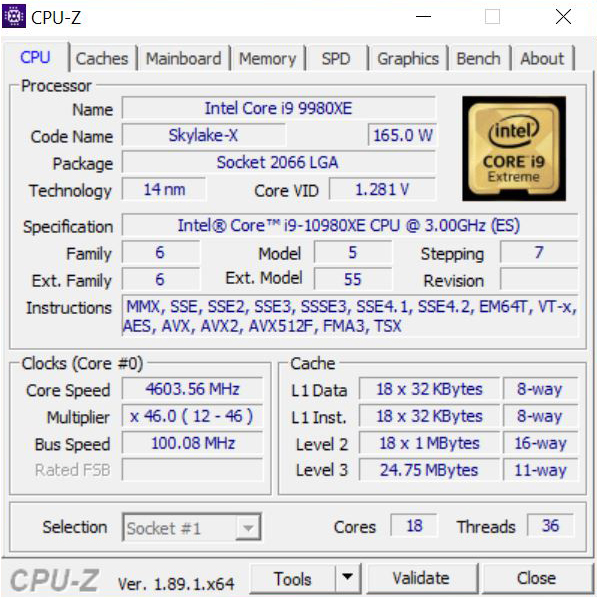
The Intel Core i9-10980XE is a very capable CPU, the base speed is 3.0GHz but can Turbo up to 4.6GHz, users are reporting speeds of 5.1 GHz with advanced cooling.
Let us continue with performance testing.
EVGA X299 Dark Motherboard Performance
As we move along with the motherboard testing we felt it was time to clean up our database and results in graphs, some new benchmarks we have not run before but will be adding them in, or newly updated benchmarks render past versions obsolete so we must start over with that benchmark.
EVGA X299 Dark Motherboard AIDA64 Memory Test
AIDA64 memory bandwidth benchmarks (Memory Read, Memory Write, and Memory Copy) measure the maximum achievable memory data transfer bandwidth.
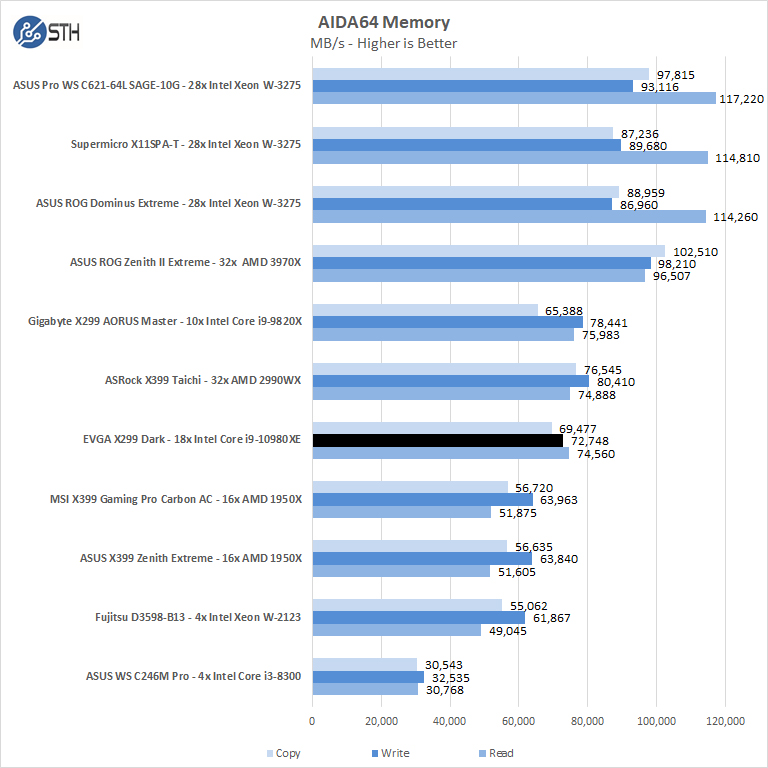
We have 6x 32GB DDR4-2933 memory on our test platform which boosts memory read speeds a great deal. The EVGA X299 Dark Motherboard showed the fastest memory speeds of the three X299 motherboards we have tested.
EVGA X299 Dark Motherboard Cinebench R15
Here are our Cinebench R15 results:
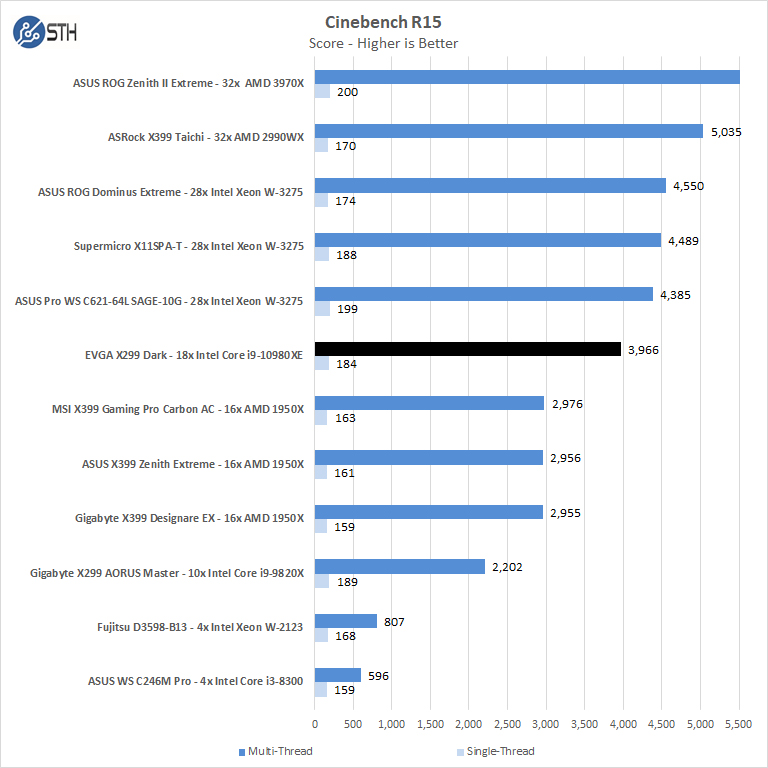
We ran Cinebench R15 several times, this is the best score we received which reinforces Cinebench does better with CPU’s that have a larger number of cores. Single-core performance on the Intel Core i9-10980XE is very good and one of the top performers.
EVGA X299 Dark Motherboard Cinebench R20
We have not run Cinebench R20 in many of our reviews to date but will continue doing so in future reviews.
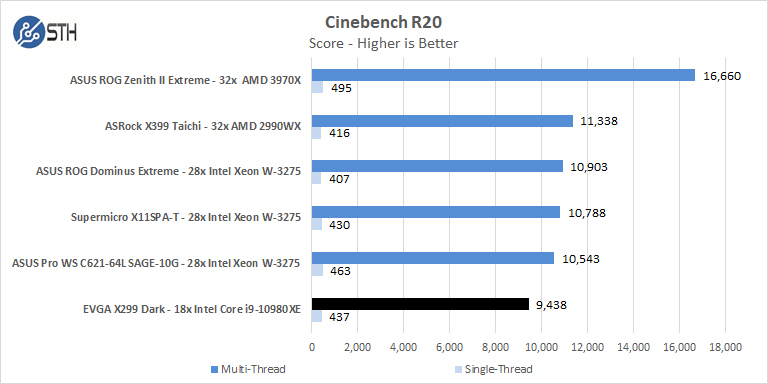
We have only just started using Cinebench R20. It shows the Intel Core i9-10980XE has a difficult time when compared to processors that have higher core counts.
EVGA X299 Dark Motherboard Geekbench 4
Geekbench 4 is a popular test suite. In 2020 we will look to include Geekbench 5 as well.
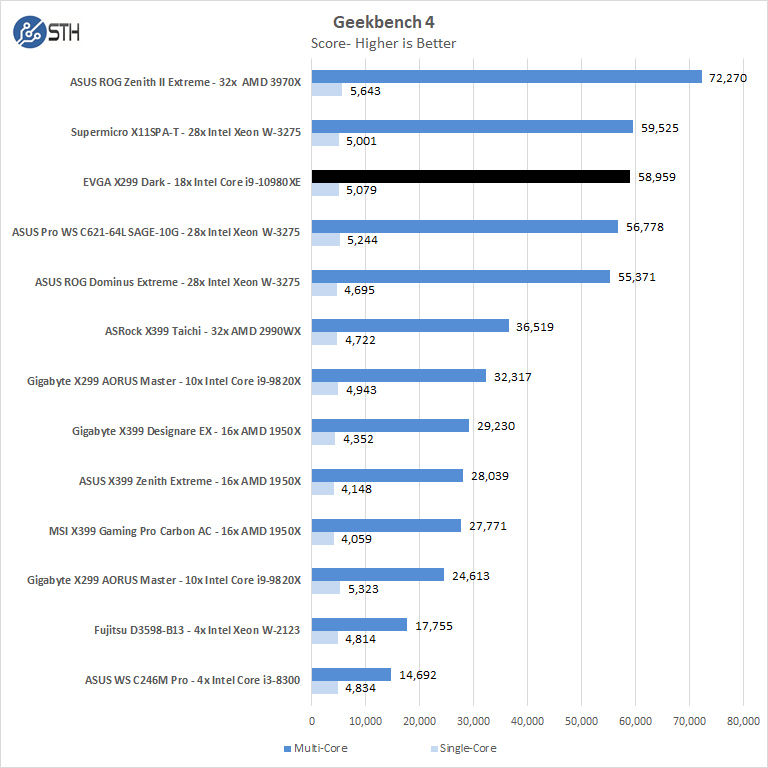
Geekbench is a benchmark that the Intel Core i9-10980XE generates very good results, second to best in this case. The CPUs above the EVGA and Core i9 platform cost 2-4.5x as much.
EVGA X299 Dark Motherboard 3DMark PCI Express Bandwidth
3DMark feature tests are special tests designed to highlight specific techniques, functions or capabilities. The 3DMark PCI Express feature test is designed to measure the bandwidth available to your GPU over your computer’s PCI Express interface.
The test aims to make bandwidth the limiting factor for performance. It does this by uploading a large amount of vertex and texture data to the GPU for each frame. The result of the test is the average bandwidth achieved during the test.
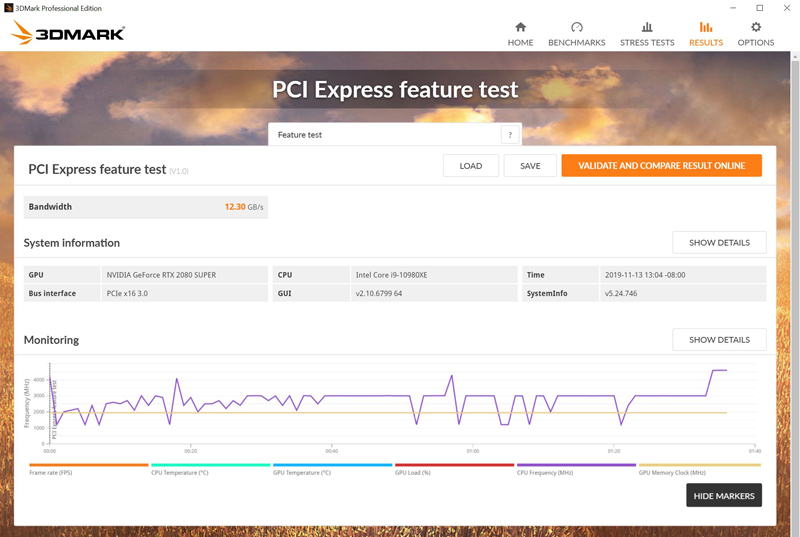
With this test we see 12.30GB/s PCIe bandwidth going to our NVIDIA RTX 2080 SUPER graphics card.
Next, we are going to look at system performance benchmarks.




EVGA says the RAM slot layout with one DIMM per channel allows for higher clocks because even the presence of the other four slots electrically would reduce signal integrity because of electromagnetic interference.
Hello, can i use a xeon W 2295 in this motherboard?